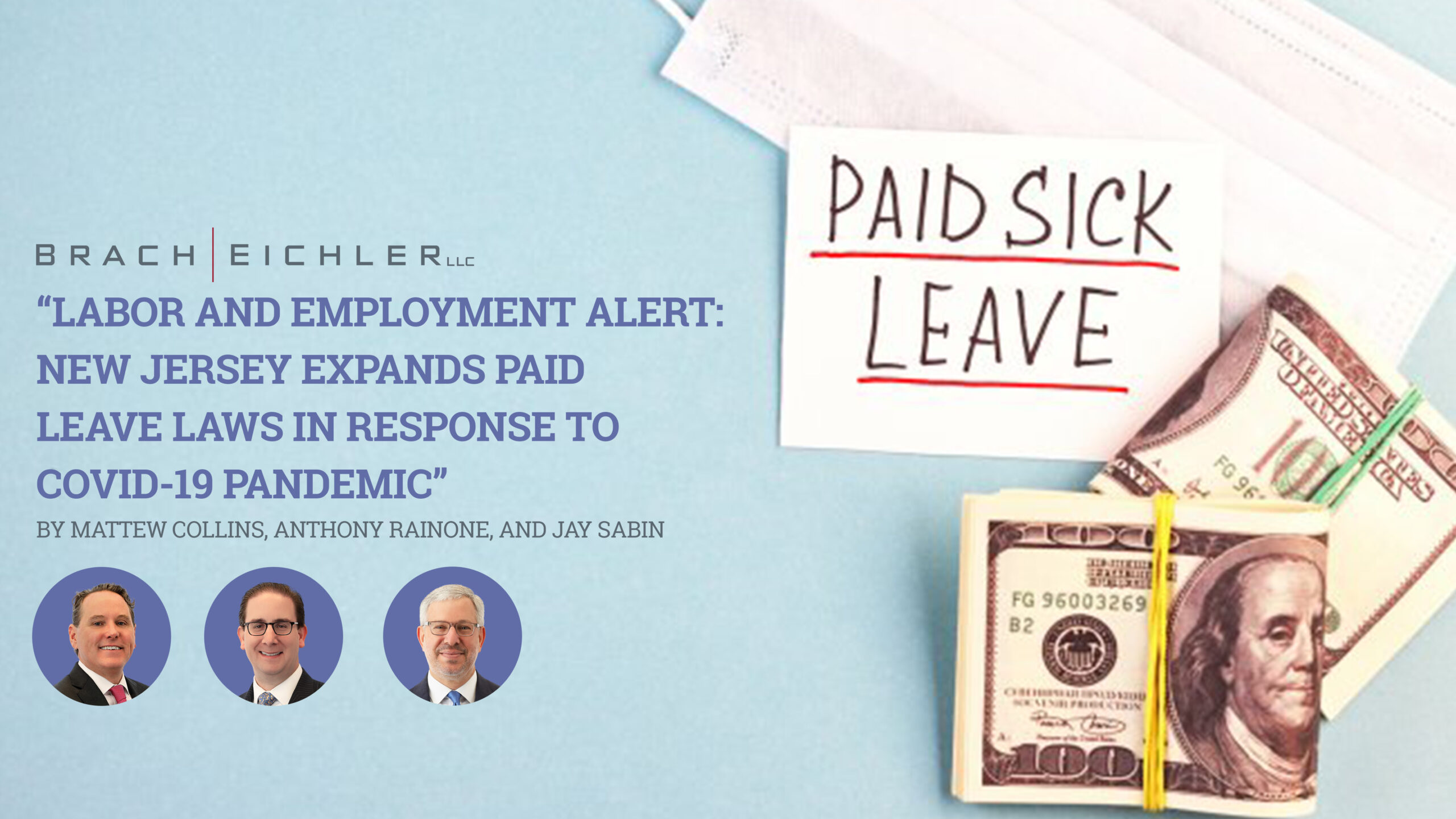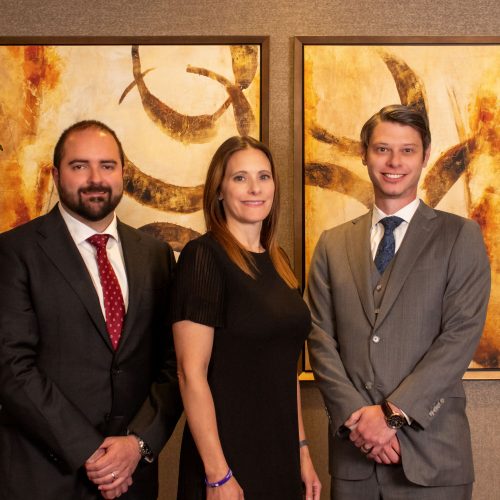Labor and Employment Alert: New Jersey Expands Paid Leave Laws in Response to COVID-19 Pandemic

April 2, 2020 – In addition to the new paid leave provisions offered under federal law (up to 80 hours of pay for a variety of COVID-19-related reasons and up to 10 weeks of reduced pay to care for a son or daughter under age 18 if the school or place of care has been closed, or the child care provider of such son or daughter is unavailable, due to a COVID-19 emergency), New Jersey has now expanded its paid leave provisions under a number of pre-existing laws, effective March 25.
New Jersey Earned Sick Leave Law (NJESLL)
The up-to-40 hours of paid leave under the NJESLL can now be used if an employee is unable to work because:
- The employee’s workplace, or the school or place of care of the employee’s child, has been closed by order of a public official or because of a state of emergency declared by the Governor, due to an epidemic or other public health emergency;
- The Governor, a healthcare provider, the Commissioner of Health, or another public health authority has determined that the presence in the community of the employee, or a member of the employee’s family in need of care by the employee, would jeopardize the health of others; or
- The employee undergoes isolation or quarantine, or cares for a family member in quarantine, as a result of suspected exposure to a communicable disease and a finding by the provider or authority that the presence in the community of the employee or family member would jeopardize the health of others, during a state of emergency declared by the Governor, or upon the recommendation, direction, or order of a healthcare provider or the Commissioner of Health or other authorized public official.
NJESLL paid leave is in addition to the 80 hours of paid leave provided for under the new federal law.
New Jersey Temporary Disability Benefits and Paid Family Leave
Employees unable to work due to their own COVID-19-related condition, or due to caring for a family member due to a COVID-19-related condition, may now obtain from the State temporary disability benefits and family leave insurance benefits.
State temporary disability benefits will be available without the usual seven-day wait period and shall be paid when the employee has an illness caused by an epidemic of a communicable disease, a known or suspected exposure to a communicable disease, or efforts to prevent spread of a communicable disease, which requires in-home care or treatment of the employee or family member of the employee due to (i) the issuance by a healthcare provider or the commissioner or other public health authority of a determination that the presence in the community of the family member or employee may jeopardize the health of others; and (ii) the recommendation, direction, or order of the provider or authority that the employee or family member be isolated or quarantined as a result of suspected exposure to a communicable disease.
Family leave insurance benefits will be available when an employee has to care for a family member who has the same type of COVID-19-related illness that would qualify an individual for temporary disability benefits. Most employees qualifying for family leave insurance benefits under these circumstances will also be protected for purposes of re-employment and continuation of medical coverage under the New Jersey Family Leave Act.
Information about both state-run programs may be found here.
We will continue to provide you with information related to additional changes or updates to these laws. We are here for you. If you have any questions about this alert, or any other labor and employment issue, please contact:
Matthew Collins, Member and Chair, Labor and Employment Practice, at mcollins@bracheichler.com or 973-403-3151
Anthony Rainone, Member, Labor and Employment Practice, at arainone@bracheichler.com or 973-364-8372
Jay Sabin, Counsel, Labor and Employment Practice, at jsabin@bracheichler.com
Related Practices: Labor and Employment
Related Attorney: Matthew M. Collins, Anthony M. Rainone, Jay Sabin












